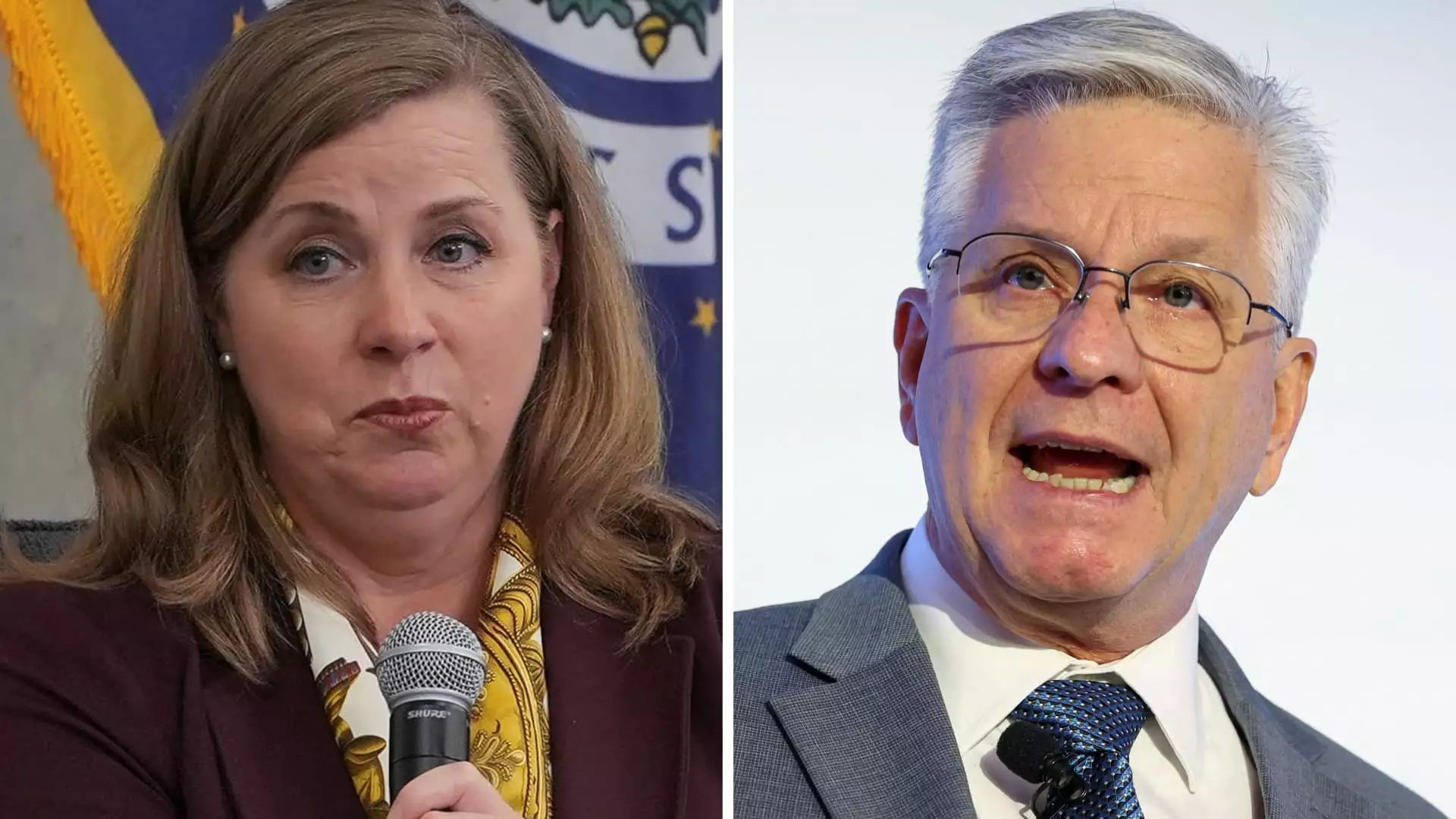In the landscape of monetary policy, unanimity often garners more public attention than dissent. Yet, history demonstrates that a healthy democratic process within institutions like the Federal Reserve benefits from diverse perspectives. The recent decision by Governors Christopher Waller and Michelle Bowman to oppose the majority stance reflects a crucial moment of intellectual and strategic reevaluation. Their willingness to dissent underscores the importance of critical thinking within monetary policy, especially when economic signals are ambiguous. Their stance is not merely about numbers; it’s about safeguarding the long-term integrity of the economy by resisting undue complacency. The core of their argument reveals a commitment to proactive measures rather than reactive passivity. This mindset champions the idea that standing still during times of economic tension can be far more detrimental than one might initially perceive.
Critically analyzing their dissent, it becomes evident that their insistence on a modest, gradual rate cut is rooted in a nuanced understanding of inflation dynamics and labor market signals. They perceive the current inflationary pressures as largely transitory, driven by tariffs that are unlikely to sustain their initial impact. Without decisive action, however, the risk exists that inflation could become entrenched or that labor markets might deteriorate, jeopardizing the economic recovery. Their perspective challenges the prevailing “wait-and-see” mentality that has prevailed since December, which many argue is rooted in cautious politics rather than robust economic evidence.
The Balancing Act: Risks of Inaction Versus Overreach
The debate within the Fed encapsulates a larger philosophical conflict: How aggressive should the central bank be in adjusting interest rates? Waller and Bowman warn that hesitation could cause the Fed to lag behind economic realities, potentially missing opportunities to bolster growth or prevent downturns. Their call for gradual, measured easing echoes a belief that financial markets and the economy benefit more from stable, predictable policy accommodations rather than abrupt shifts motivated by political pressure or short-term inertia.
Their disagreement also highlights a broader critique: The current approach risks underestimating the damage that delayed policy responses can inflict. While policymakers often aim for stability, in their pursuit, they may inadvertently foster stagnation, inflation in disguise, or labor market weaknesses. Their dissent is rooted in the conviction that an overly cautious approach might “fall behind the curve,” leaving the economy vulnerable to shocks that could have been mitigated with timely adjustments. They argue for a proactive stance that carefully navigates the delicate balance between preventing inflation runaway and supporting employment.
Political Pressure and Monetary Policy: A Dangerous Intersection
The economic debate is further complicated by external political influences, most notably former President Trump’s vocal urging for aggressive rate cuts. Trump’s persistent criticism and calls for the Federal Reserve to lower interest rates sharply reflect intense political meddling that threatens the independence vital for effective monetary policy. Such politicization inflames the debate, forcing central bankers into a reactive stance rather than an objective one, risking policies driven by populism rather than sound economics.
By openly criticizing Chair Jerome Powell and the Federal Reserve, Trump exemplifies how political leaders can distort the temperance necessary for scientifically grounded monetary decision-making. His tone suggests a view that monetary policy should serve immediate political interests over long-term economic health, which can undermine central bank credibility. Waller and Bowman’s dissent not only signals a commitment to economic prudence but also implicitly stands against the populist temptation to short-circuit data-driven decisions in favor of political expediency.
The Need for Leadership Guilty of Courage, Not Conformity
In an era marked by economic uncertainty and political pressure, the willingness of Waller and Bowman to dissent is an act of leadership that deserves recognition—if not outright emulation. Their stance signals that the Fed’s strength lies in its capacity for robust debate and diverse viewpoints. Economic resilience depends on policymakers’ courage to challenge consensus when they believe the risks warrant it.
Moreover, their dissent serves as a reminder that monetary policy is not merely about fixing numbers on a spreadsheet; it is about shaping the future of millions of Americans’ lives—jobs, wages, and stability. When officials are afraid to speak up, the entire system suffers. Their insistence on gradual, deliberate easing reflects confidence in economic fundamentals and a trust in data over political rhetoric. Such an approach champions economic resilience built on integrity, nuance, and strategic foresight rather than fear of market reactions or political fallout.
In this context, boldly challenging the consensus becomes a vital act of economic stewardship, reinforcing that strong institutions require courage and conviction. It is in these moments of dissent where true leadership manifests—not in blind agreement but in thoughtfully questioning the status quo for the betterment of the broader economy.

